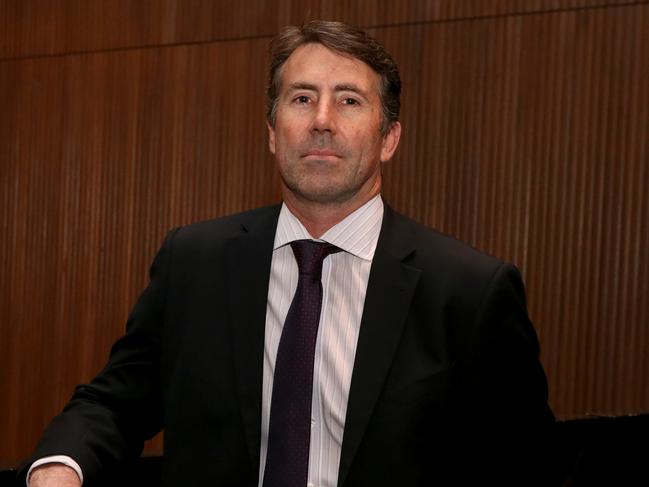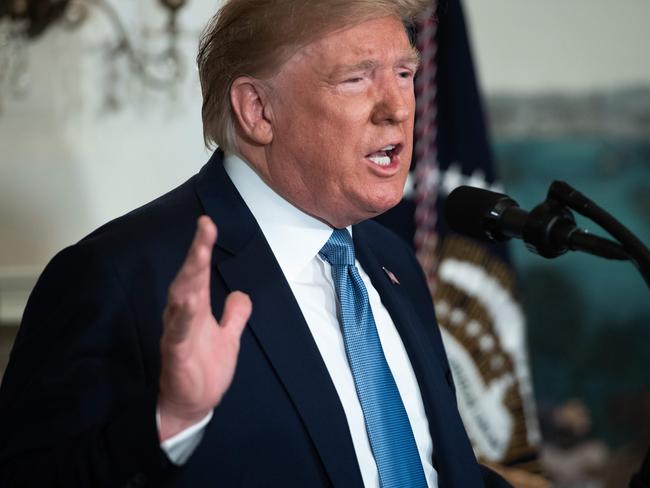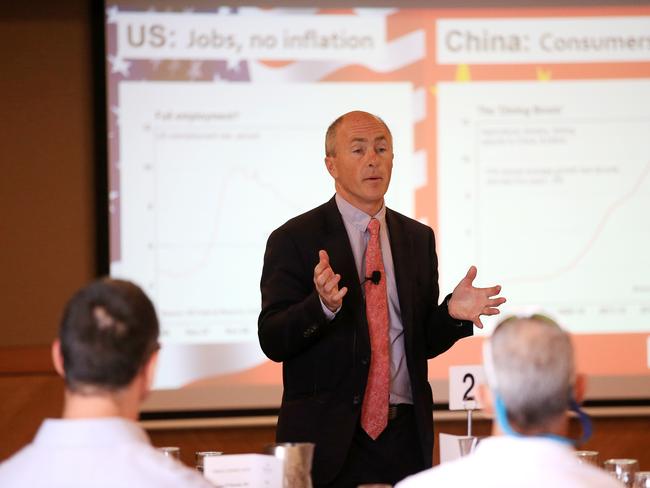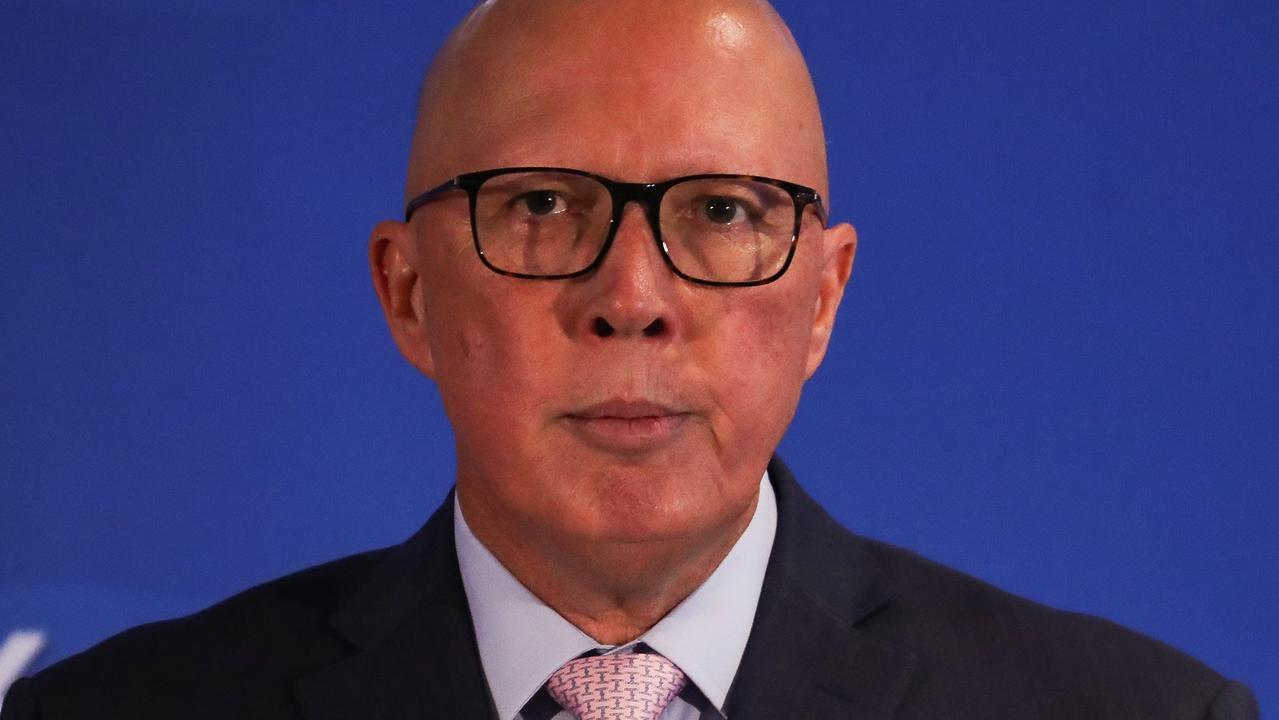Australian share market fall: Experts reveal what it means for investors
Trying to understand what the stock price chaos here and abroad means for you and our economy? This is the story to read.
“The market’s back to where it was three weeks ago.”
That’s how Argo managing director Jason Beddow, who oversees $6 billion of investments, sums up the impact of the two-day, near $100 billion plunge in the worth of Australian stocks.
Argo is one of the favourite investment vehicles of Barefoot Investor Scott Pape. It’s been around since 1946. Mr Beddow is its third boss in that time.
He isn’t panicking. Therefore, arguably, neither should you.
“The market has delivered the strongest six-month return since 1990,” Mr Beddow told News Corp Australia. “I’m not sure the economic and geopolitical outlook is so good as to support the best returns for 30 years. That’s a little bit too punchy.”
Key Australian sharemarket indices fell two per cent on Monday and another three per cent this morning.

Aussie market tumbles as trade war heats up
Scott Pape: How to pick a great accountant at tax time
US wants Australia’s help in the Gulf
“It’s like a rubber band that’s stretched too far,” Mr Beddow said. “It generally comes back a bit.”
Another leading professional investor, Federation Asset Management chairman Greg Bundy, said the next six to 12 months would be volatile as the US entered its election cycle.
But that would present opportunities for self-funded retirees to pick up shares in growth-oriented companies at potentially bargain prices.
“We are going to have more days like this that are driven more by geopolitics than economics,” the former Merrill Lynch Australia CEO said. “I would view some of these downturns as a chance to add some stocks.”
The trigger for the reversal in sentiment has been China’s retaliation to Donald Trump’s latest round of US tariff increases.
Earlier this week Beijing allowed its currency to drop by the biggest amount since 2015.
That counteracts the tariff hikes by making its exports cheaper.
In response President Trump accused China of “currency manipulation”, heightening investors’ concerns that the tensions will heighten even further.
The implications for Australia are considerable given China is, by far, our largest two-way trading partner — 150 per cent greater than the next biggest relationship, with Japan.
Westpac chief economist Bill Evans said he did not expect the US-China trade war to cause a recession here. Australia’s economy has been expanding for 28 years — a global record.
“The Australian dollar will perform its normal role as a shock absorber. We are seeing that already,” Mr Evans, one of the nation’s most respected economists, told News.

Hidden tax sting in working for Deliveroo and Uber
Weird and wacky tax claims revealed
The dollar has fallen about 1.5 US cents since the start of the month.
That makes our exports better value, which boosts economic growth.
The decline in our currency has not been the result of any manipulation.
Unlike China’s currency, the Aussie dollar goes where markets take it.
“China will be stimulate their domestic economy, too” Mr Evans said. “That will support demand for our commodities. It’s a policy response that will certainly help Australia.”
Mr Evans anticipated the Reserve Bank of Australia would cut the cash rate again in October and early next year to further bolster the Australian economy.
It was important that a recession was avoided, Mr Evans said.
“That would really be a major shock to business and consumer confidence.
“Economies run off confidence.”
He recalled the situation in 2009, during the Global Financial Crisis, when Australia looked set to enter a recession by recording a second consecutive quarter of economic contraction.
But it was ultimately avoided.
“Our consumer sentiment index jumped 10 per cent,” Mr Evans said.
CommSec chief economist Craig James said Australia could be the “real winner” of the skirmish between the world’s economies.

Mr James acknowledged a weaker Aussie dollar was unwelcome among consumers planning to buy goods online from abroad or to go on an overseas holiday.
However, he emphasised the bigger picture.
Already, Australian exports were going “gangbusters”, with the trade surplus hitting a record $8 billion in June, according to data published yesterday.
“A weaker Aussie dollar has helped,” Mr James said. “The quality of Australian produce is another key reason why our exports are soaring.
“If China cuts back on US agricultural products, it will find quality products Down Under to fill the void.
“If China wants to ramp up infrastructure spending, the quality raw materials are here in Australia,” Mr James said.
“The sharemarket hasn’t cottoned onto it as yet — but if the US and China don’t want to buy each other’s goods, other countries have opportunities to meet the end demand.”
Noting the excellent trade result and record-low official interest rates, Federation’s Mr Bundy said “there are lot of positives out there for Australia yet the market is still off more than two per cent.
“You have to see through that.”
He recommended that self-funded retirees consider decreasing their holdings in bank stocks and increasing their stakes in technology companies. This would boost returns from share price growth at a time when dividends from the big four were likely to decline.
“You are not going to get the yield you need,” Mr Bundy said.
Q&A
What does the global share market rout mean for Australia?
The fall over the past couple of days has likely taken thousands of dollars from your superannuation.
The value of units in the balanced option of the largest fund, Australian Super, fell by two per cent on Monday and probably more yesterday (figures weren’t available prior to publication). If you had $100,000 in retirement savings you’ve probably lost $4000-plus this week — unless your money is in a conservative setting.
It must be remembered that our share market has just had one of its best runs in three decades. That Australian Super balanced option was up 23 per cent since January 1 as of last Friday.
Does it feel like the best economic conditions since MC Hammer was charting? Not to me. So the gains were probably overdone; perhaps this fall will prove to be overdone too. Markets tend to overshoot in both directions if examined over the short-term only.
I’m worried markets will fall further. What should I do?
If you are thinking of changing the setting on your super or making some other major action, you should probably get professional advice. Many super funds have financial advisers available to assist you. Check with yours.
The problem with moving into defensive mode when markets get choppy is this: when do you go back to a balanced or growth setting? It’s possible to end up worst off by missing the bounceback.
What does Chinese ban on US products mean for Australia?
This could be good news. If China doesn’t want to buy agricultural products from America it will likely need to get the goods from somewhere else. Australia’s agricultural products stand out because of their quality. And our falling dollar (thanks to the trade war) is making our produce cheaper and therefore more attractive.
What does the turmoil in Iran mean for Australia?
The main way this will be felt by Australians is at the petrol bowser. Concerns about Iran’s seizure of oil tankers has been keeping the international cost of crude higher than where it would otherwise be.
Oil isn’t getting more expensive, but it would probably be falling in price were it not for the dramas in the Persian Gulf.
Australia could be drawn into that by the US, which on the weekend asked for our help in protecting shipping routes.
Why is the Australian dollar falling?
The Aussie dollar is considered a “risk-on” currency. It will tend to fall when risk levels are increasing. So this is a normal reaction to the trade war concerns. Conversely, that’s why the Japanese yen is appreciating. It’s a risk-off currency, as is the US dollar. Some analysts have said higher tariffs will keep the Aussie dollar at lower levels for a long time.
While this is bad if you are planning an overseas holiday, it’s good for our economy because it makes our exports more attractive.


